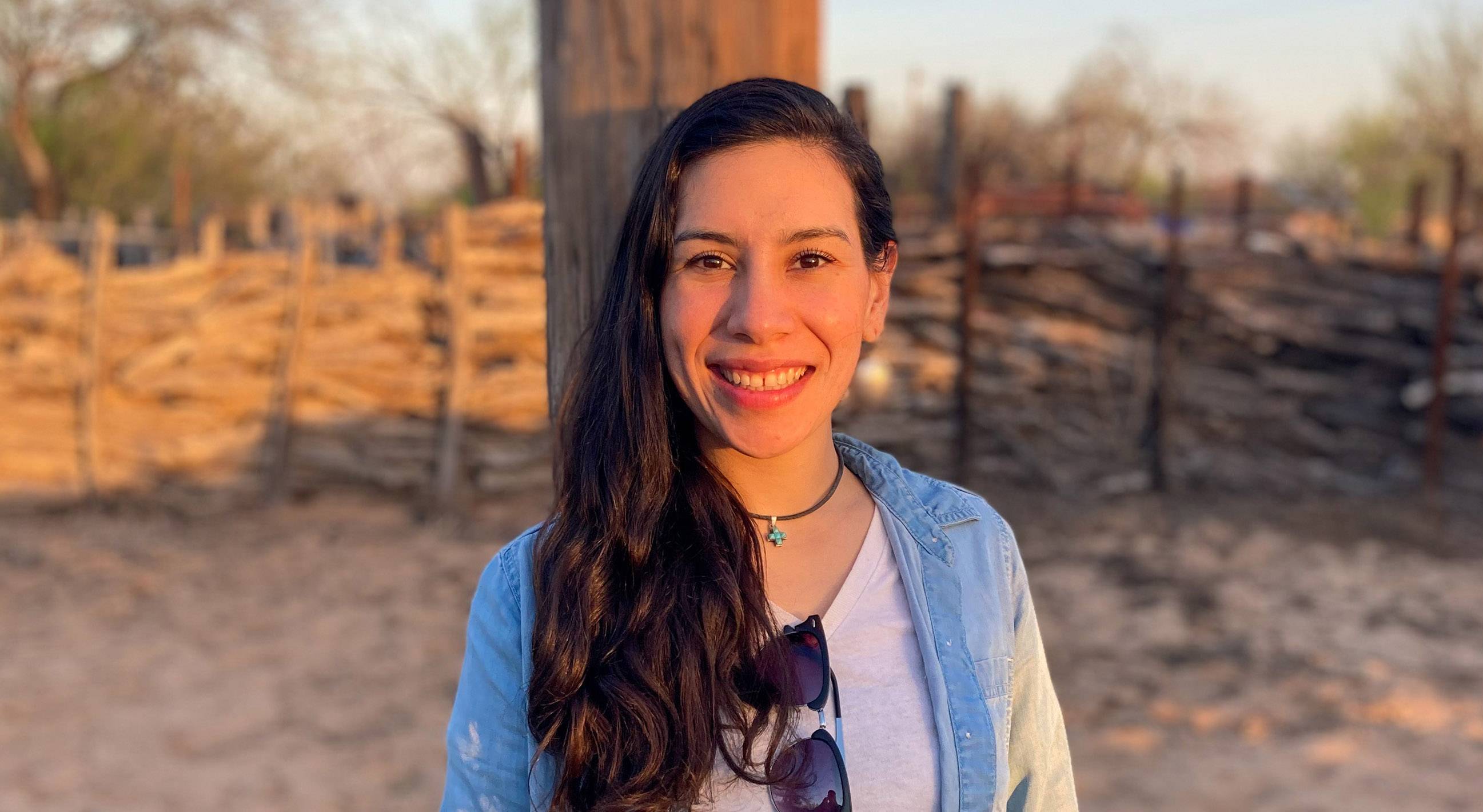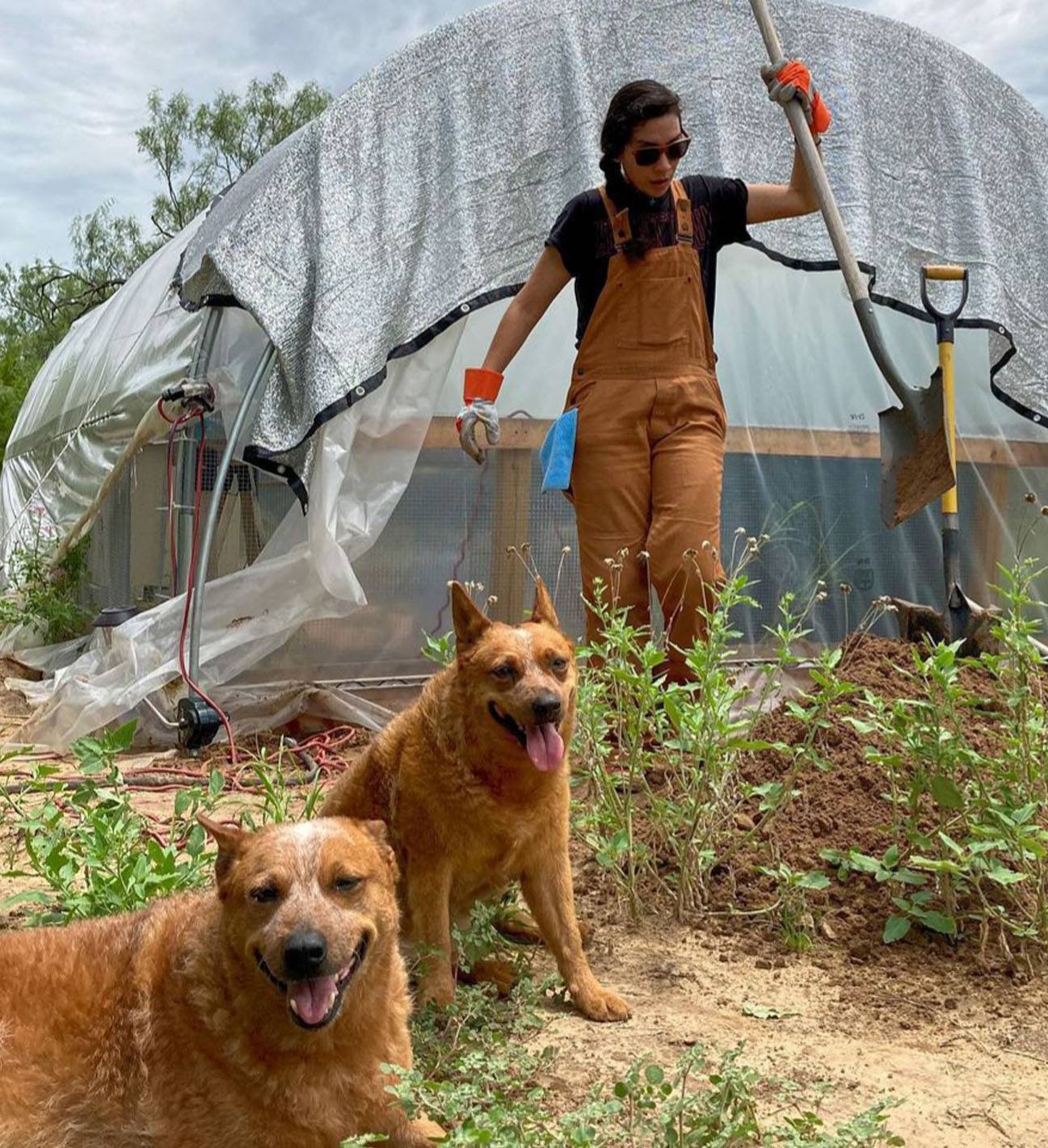
Texas State graduate expands business on 160-year-old family farm and ranch near Laredo
By Leslie Asher Blair
Marcella Juárez (B.S. ’16, M.S. ’18) is part of a surprising but growing group in Texas — the 156,000-plus women who are farmers and ranchers.
She makes her home 15 miles outside of Laredo, on the 110-acre Palo Blanco Farm and Ranch. Juárez grew up on the ranch, which has been in her family for more than 160 years.
Now Juárez is fulfilling her dream of running a sustainable organic farm with the help of her family. She holds the titles of owner and farm manager and works with her parents, Manuel Juárez (B.A.S.S. '81) and Mary Sue Galindo Juárez (B.A. '01) — both retired educators. Her brother, Manuel Juárez Jr. (B.S. '01) also has an agriculture degree.

Plans for the future of Palo Blanco are detailed and fill pages. Juárez started the operation growing microgreens inside the family’s ranch house. Currently, she is growing lettuce, herbs, tomatoes, and edible flowers in a hydroponic greenhouse built with her father's help. Juárez also uses an efficient German raised bed method of farming called hügelkultur to grow produce outside of the greenhouse.
The family uses no herbicides, pesticides, or fungicides on the farm. “Thanks to the practices we’ve employed, we haven’t faced any issues,” Juárez says. “I really haven’t had to pull any weeds, and we’ve been operating for two years, which is unheard of.”
She credits the Texas State University Department of Agricultural Sciences with providing her with the tools and education needed for sustainable farming. She admits to falling in love with hydroponic farming while she was working on her master’s degree. Although the degree itself is in agricultural education, she specialized in hydroponic and sustainable farming.

Juárez has capitalized on the farm-to-table movement, selling microgreens and produce to Laredo restaurants. “I’m ecstatic to be working with local chefs who have commented on how needed the products are and their high quality,” says Juárez. In addition to having a booth at the local farmers market, she and her family started a farm-to-table delivery service on the first Friday of each month. They take orders and then deliver eggs and produce to customers throughout the area.
Even the laying hens contribute to the farm’s sustainability. Juárez explains that hens are kept in chicken tractors, which are essentially mobile chicken coops. “That way they’re eating things that are naturally found in their diet and fertilizing the land as they move across the area. Everything we do, we try and do it sustainably and in a way that’s going to really build the soil and help us consciously use our resources like water. And that really comes from having such love and respect for the land and wanting to take care of it,” Juarez says.
The newest project at the farm is converting a shipping container to a greenhouse. Juárez received a Texas Department of Agriculture Young Farmer Grant for the project. Serendipitously, the South Texas Food Bank also wanted to convert a shipping container to a greenhouse, but the staff did not know how to do it. They learned that Juárez was undertaking such a project and asked her to collaborate with them. “So again, we’re kind of outliers, but we’re seeing it catch on down here,” she says.
Delivering quality food to families in the area and helping the food bank are part of her dream. She attended middle school next to a prison just south of Laredo. Many of the students with whom she attended school lived in poverty. “I saw firsthand how important it is to have access to good food. Laredo has a poverty rate double the national rate. That was a big reason why I studied agriculture — to come back and give the people in my community fresh and healthy food that they deserve.
“I’m just so grateful and lucky that I got to go to Texas State University, where the agriculture department is phenomenal. I got the hands-on experience and guidance I needed,” Juárez says. ★